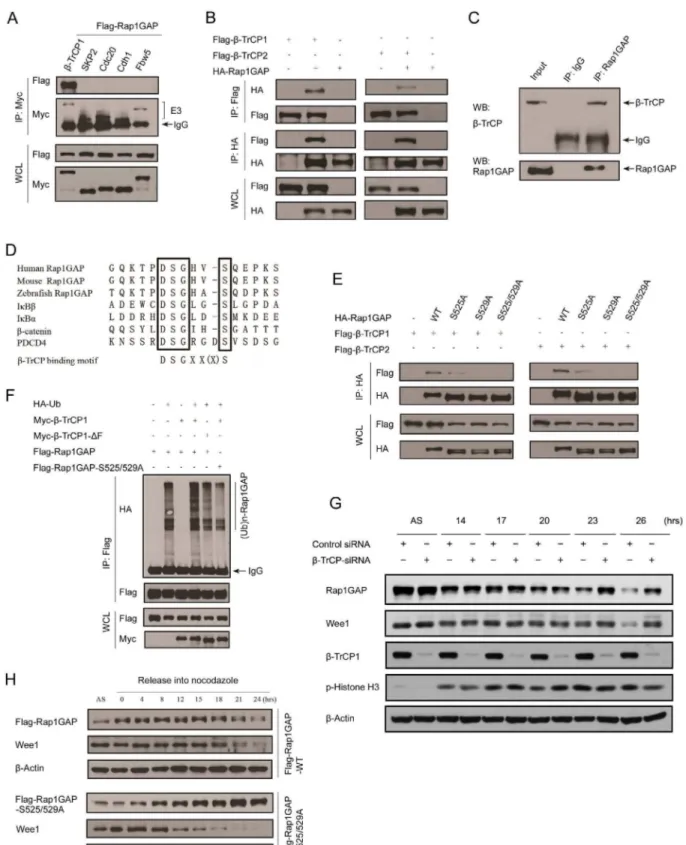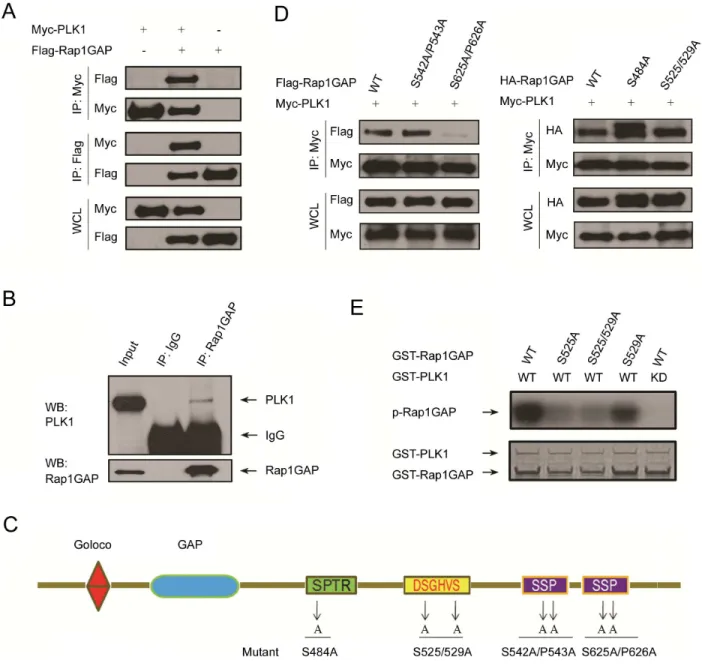PLK1 and β-TrCP-dependent ubiquitination and degradation of Rap1GAP controls cell proliferation.
Texto
Imagem


Documentos relacionados
The use of the HS-deficient mutant CHO- 745 and the wild-type CHO-K1 demonstrated that heparan sulfate proteoglycans were not involved in cell adhesion to FN, VN, LN and type I
menstrualis (F2.0v), showed antinociceptive and anti-inflammatory activities that are related to its ability to bind the cell surface of leukocytes, preventing
In a separate experiment HEK293 cells were transiently transfected with Flag-tagged wild type SIRT6 and cell extracts were prepared and immunoprecipitated with an anti-Flag antibody
We begin by fitting the initial network (see panel A of Figure 1) to the data of wild type cultivated tomato and mutant.. This means that we employ optimization algorithms to
Phenotype analysis of the ytpQ mutant showed that it had an elevated level of oxidative protein damage after methylglyoxal treatment compared to that of the wild-type parent..
This response was reduced by 48% with the S125A mutant and 46% by the M130L mutant compared to wild- type TMEV (Figure 4B), demonstrating that the VP2 mutations altered the quality
Fig 5. Cell lysates were immunoprecipitated with an antibody to LTBP4 and immunoblotted with an antibody to the FLAG tag on TGF β 1, TGF β 2, and TGF β 3.. Each of these
We next immunoprecipitated (IPed) p110 a from lysates of vector, wt ORF1, and V125A cells, as well as T123D cells expressing the Ad9 E4-ORF1 PBM mutant T123D protein unable to bind